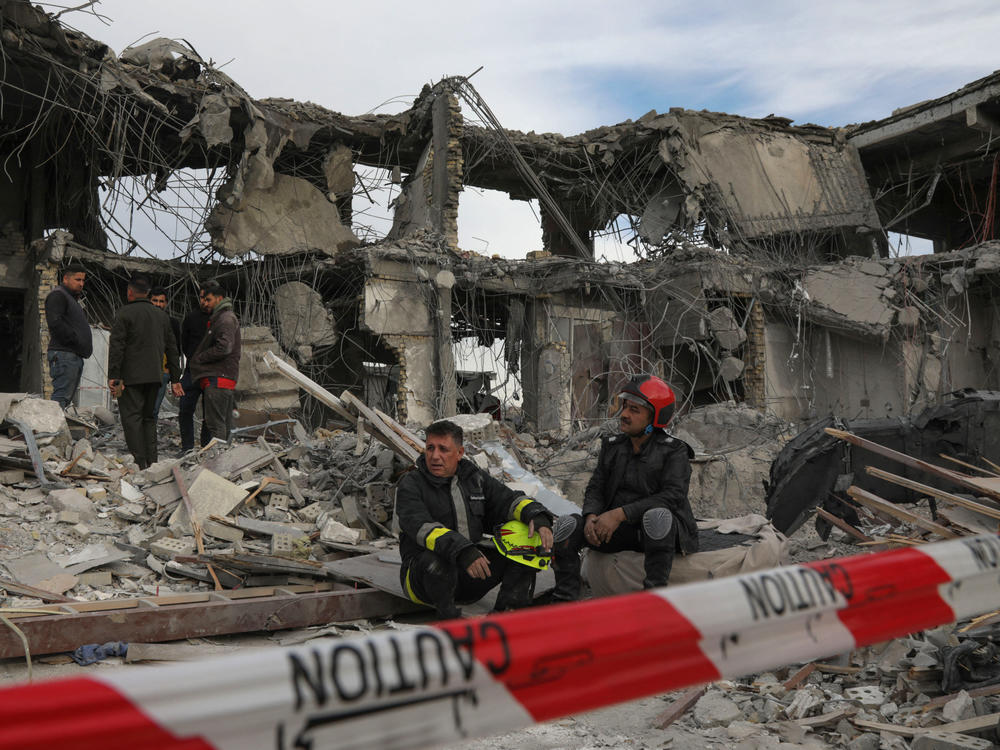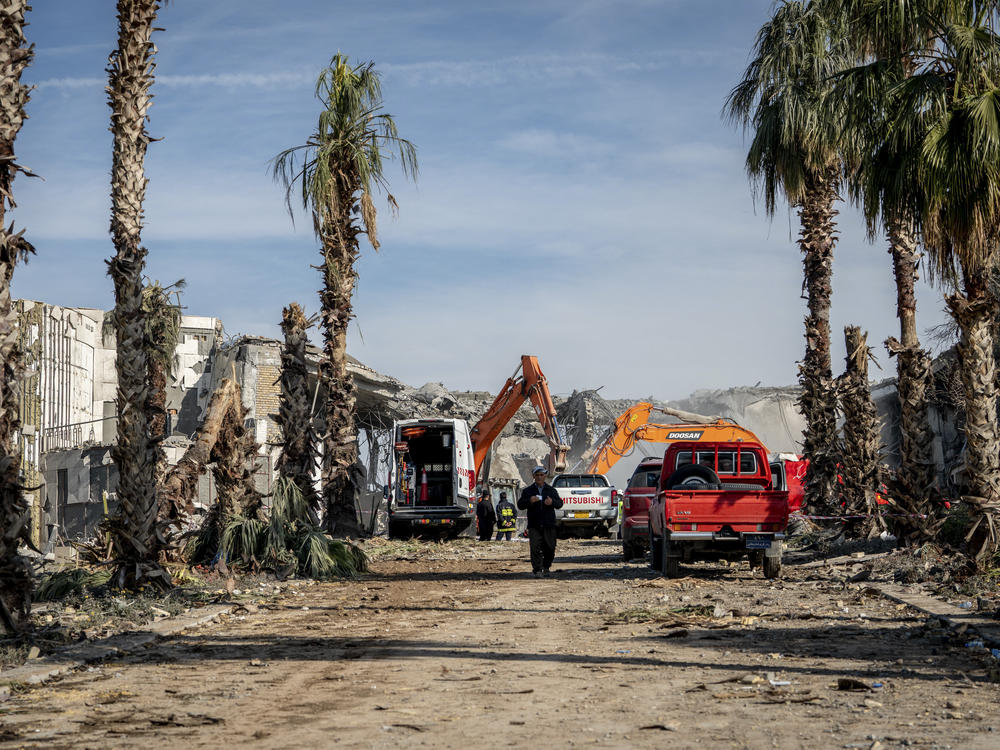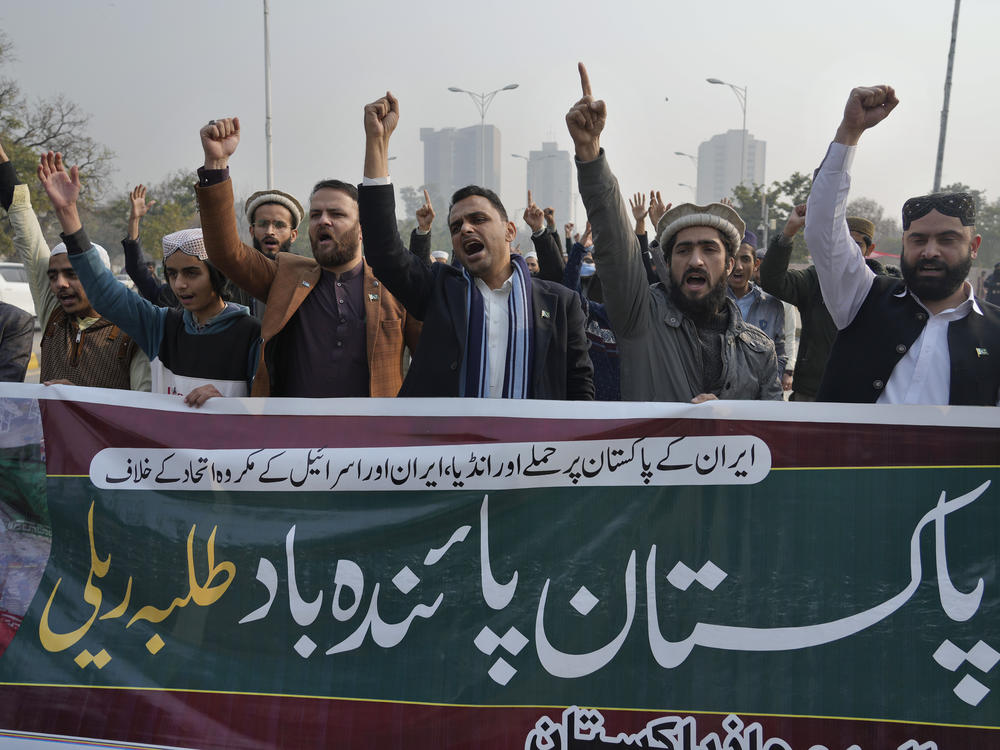Loading...
Section Branding
Header Content
Iran's regional flashpoints are increasing. Here's what to know
Primary Content
Pakistan launched an attack Thursday using rockets and drones against a Balochistan separatist group inside neighboring Iran, killing nine people, just two days after Iran fired rockets at a rival separatist group on Pakistan's side of the border.
The attacks came as Iranian-backed groups have plunged the Middle East into crisis.
Here are five things to know about Iran's involvement in a variety of flashpoints, from Gaza to Pakistan:
Why are Iran and Pakistan attacking each other?
The attacks took place in an area called Balochistan, a large region straddling Pakistan, Iran and Afghanistan. It has long been a space where militants, separatists and smugglers have thrived and have used the region as a redoubt to attack both Iran and Pakistan, as NPR's Diaa Hadid reported. Iran has previously conducted small ground incursions into Pakistan's Balochistan province in pursuit of militants.
On Tuesday, Iran fired missiles and drones into Pakistan's southwestern Balochistan province, saying it was targeting a separatist hard-line Sunni Muslim group called Jaish al-Adl.
In an apparent tit for tat, Pakistan — a nuclear power — hit back with rocket and drone strikes on Thursday in an attack on a different Balochistan separatist group inside Iran. Iranian state media said the attack killed nine people.
Following the attack, Pakistan's caretaker prime minister, Anwaar-ul-Haq Kakar, rushed home from the World Economic Forum in Davos, Switzerland, to meet with the top brass and senior government officials.
Where else has Iran attacked?
On Monday, the day before the Iranian strikes in Pakistan, Iran also fired missiles into the Iraqi city of Irbil, the capital of the Kurdish region in Iraq's north, killing a prominent Kurdish businessman and several other people. The strike was in the neighborhood of the U.S. Consulate. The Iranian government said it was targeting Israeli spy operations, something the Kurdish leadership denied.
At the same time, Iran also fired missiles into northern Syria, in what Tehran said was revenge for the suicide bombings at the memorial ceremony in Kerman, Iran, for a top Iranian general killed by a U.S. drone strike in Iraq four years ago. The Islamic State group claimed responsibility for the bombings, which killed dozens of people.
How is this different from past attacks?
Iran often prefers to use its proxy forces based around the Middle East to carry out attacks against its foes. Hezbollah is a powerful militia in Lebanon. The Houthis in Yemen have launched missile attacks on international shipping in the Red Sea that have drawn repeated U.S. airstrikes in Yemen. The Palestinian militant group Hamas' Oct. 7 attack on Israel killed 1,200 people, according to Israeli officials. Israel has responded with a military campaign in Gaza that has left more than 24,400 people dead, according to Gaza's Health Ministry.
It is more unusual for Iran to use direct missile strikes and on such a wide range of targets.
Will Iran and Pakistan try to de-escalate tensions?
After the unprecedented flare-up across the Iran-Pakistan border, analysts expected both sides to try to tamp down tensions: Iran has put on a sufficient show of force against the group it accused of attacking it, and Pakistan has responded in kind. Pakistani officials noted that all those killed in the latest strikes inside Iran were Pakistani nationals, not Iranians. The risks of further escalation were seen as diminishing.
How will this affect the conflict in the Middle East?
With tensions sky-high in a tinderbox region — and with a war in full spate in Gaza — the risk of another front opening up is constant, especially with a large variety of proxies, extremist groups and long-standing enemies facing off in a number of countries. Israel and Hezbollah have also been trading fire across the Lebanon-Israel border for weeks, raising the risk of a second front opening in the war.
Copyright 2024 NPR. To see more, visit https://www.npr.org.



